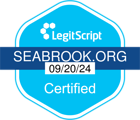Depression Treatments Can Lower Drug Addiction Rates
Depression Treatments Can Lower Drug Addiction Rates
It is well known that most people don’t turn to drugs for no reason. Many people use drugs as a coping mechanism, a way to deal with things beyond their control or beyond their ability to handle. Now, a new study by Duke University has demonstrated that treatment for depression can lead to significantly lower rates of drug addiction among teenagers.
Teens often feel strong emotions as they enter a very turbulent time in their lives. Many teens say they feel depressed, but don’t know who to turn to with their feelings. Duke University’s new study concluded that, of the teens with problems with depression, the ones who received treatment for their depression only abused drugs at a rate of 10%. This is compared to the 25% of depressed teens who didn’t receive treatment for depression. Duke University’s study shows the relationship between a person’s circumstances, emotions, changes, and the drugs they can often turn to. Sometimes it seems like drugs are the only things that can make a person feel good or normal again.
If you’ve turned to drugs because of feelings of despair, worthlessness, or isolation, don’t worry. Thankfully there is good help available. Medications and cognitive-behavioral therapy have proven to be effective in treating drug addiction. It can be difficult or impossible for someone to treat themselves on their own (or with family members), so it’s very important to find the right treatment center. At Seabrook, we customize our treatment plans to each individual patient’s needs, so you can rest assured that you’ll be getting the right remedy for yourself or for a loved one. Seabrook has rehabilitation centers in New Jersey (NJ), Pennsylvania (PA), and an outpatient center in New York (NY). Contact Seabrook today for any questions about drugs, addiction, and treatment.




